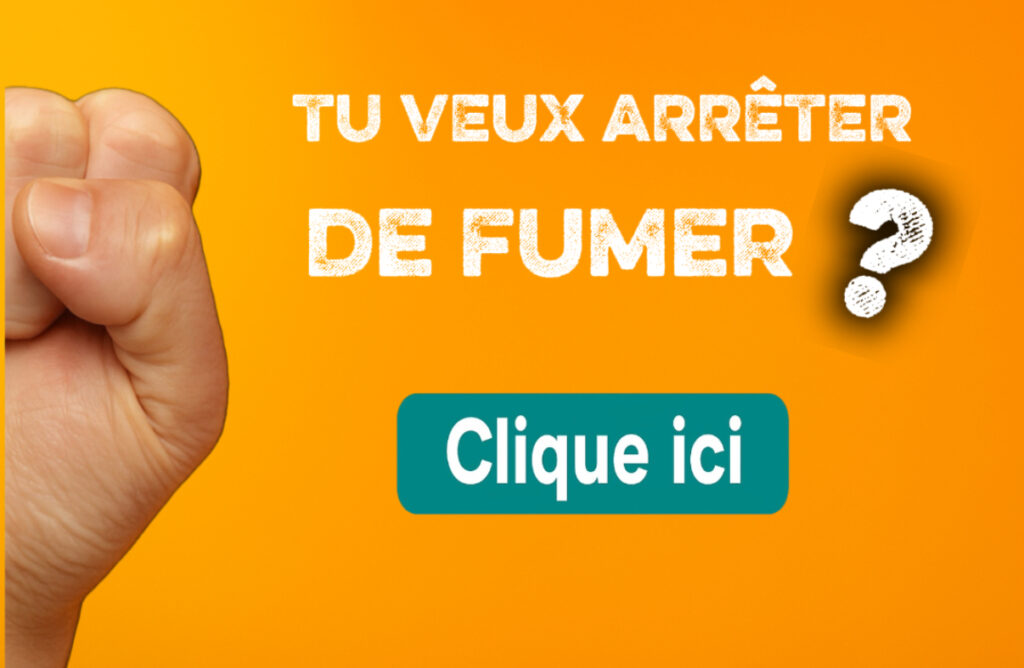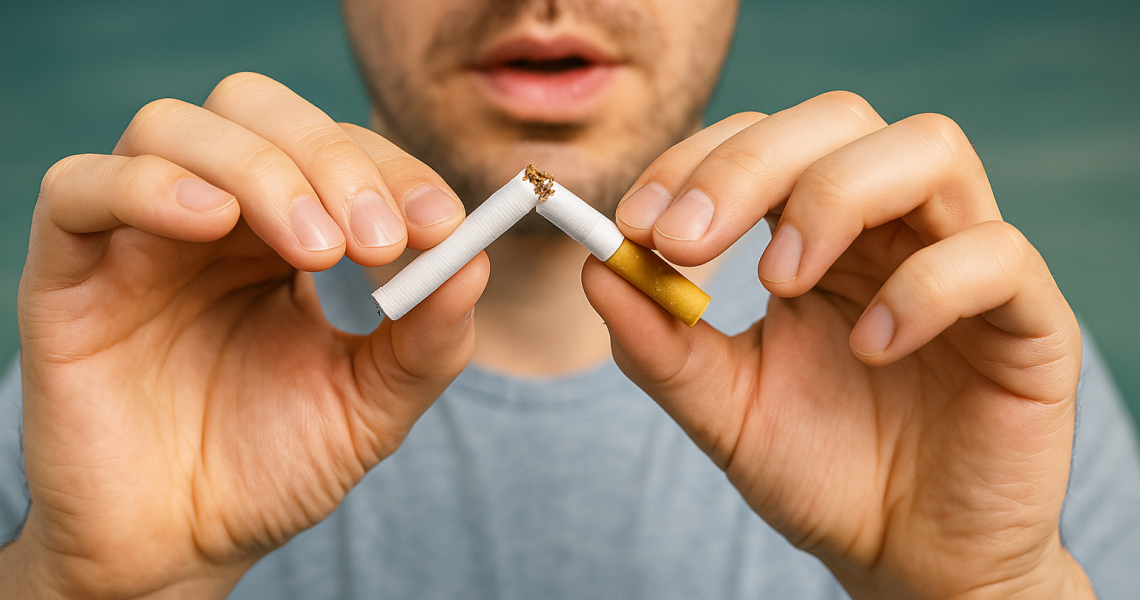It’s an idea that still worries some smokers: “what if quitting smoking triggers cancer?“
An unfounded but tenacious belief, which feeds the fear of many people wishing to free themselves from their smoking addiction.
In reality, the benefits ofquitting are considerable, both for the lungs and for overall health.
And contrary to rumor, quitting smoking doesn’t cause cancer – in fact, it’s the best way to reduce your risk.

Tobacco and cancer: a well-established relationship
Tobacco remains the leading cause of preventable cancer in France.
Each cigarette contains thousands of toxic substances, several of which are directly responsible for mutations in lung cells.
Among them :
- carbon monoxide,
- heavy metals,
- tars,
- nicotine (which maintains dependence),
- and combustion-related carcinogenic compounds.
These elements accumulate in the lungs, disrupting cell regeneration and altering bodyfunction.
Smokers expose not only their lungs, but also their heart, blood vessels and immune system to profound damage.
It’s important to remember that it’s smoking, not quitting, that causes cancer.
Why do some people think that quitting smoking makes you sick?
When a smoker decides to stop, the body begins a natural cleansing process.
This weaning phase is sometimes uncomfortable: coughing, fatigue, nervousness, slight chest pains.
These temporary effects do not reflect illness, but regeneration.
Nicotine withdrawal enables the lungs to evacuate accumulated toxic residues.
The bronchial cilia, put to sleep by the smoke, start working again, which can cause a more pronounced cough.
This reflex is actually a sign of healing.
So if some people discover cancer after they’ve stopped smoking, it’s not the result ofquitting, but the revelation of a disease that was already present.
Smoking hides symptoms, while weaning brings them to light.
The measurable health benefits of quitting smoking
The data are clear: from the very first day of quitting, the benefits are felt.
- After 24 hours, carbon monoxide disappears from the blood.
- After 48 hours, nicotine is eliminated from the body.
- After 2 to 3 weeks, breathing becomes more fluid and the lungs regenerate.
- After 1 year, the risk ofheart attack is halved.
- After 10 years, the risk of lung cancer is halved.
Every day without cigarettes is a natural treatment that the body gives itself to regain its vitality.
Smoking weakens the respiratory system, whereas stopping smoking strengthens it.

Anti-smoking laser: a gentle, effective way to say stop
Today, newsupport methods are making it easier to smoking cessationwithout stress or weight gain.
These include laser auricular reflexologyknown as anti-smoking laser, is winning over a growing number of patients.
The principle is simple: precise points on the ear – areas connected to the human brain – are stimulated with a gentle, painless and non-invasive laser.
This energetic stimulation activates the production of endorphins, soothing nicotine dependency and reducing cravings .
Unlike nicotine substitutes or patches, this natural method contains no chemicals.
It acts on the root causes of addiction, both physical and emotional.
Patients report positive opinions:
“I came for a session, without really believing in it. After two days, I had no craving for cigarettes. I’ve regained my breath and my serenity.”
The anti-smoking laser approach is not limited to smoking: it also helps to reduce alcohol and sugar consumption, or even to better manage stress.
Why choose laser ear reflexology?
This smoking cessation method is based on an overall rebalancing approach.
It considers the smoker not as a “sick person”, but as a person in transition towards a better state of health.
The laser, used on the ear’s reflex points, sends precise signals to the brain.
These stimulations help release dependency, reduce nervous tension and support the body in its detoxification phase.
The practitioner adapts the session to the smoker’s profile, smoking habits, weight and reason for quitting.
Each treatment is personalized, with advice on daily life, breathing and stress management.
This professional support is essential: it combines expertise, listening and understanding of the patient.
This is the quality of the MyLaserTabac network, a pioneer of this approach in France.
Young people and prevention: a major challenge
Young people are a generation at risk.
Many start smoking before the age of 18, often through mimicry or social influence.
Their bodies are more vulnerable to toxic substances, and nicotine dependence sets in more quickly.
Raising awareness of the need for early cessation is therefore essential.
The earlier youstop smoking, the more your lungs and cells have the capacity to regenerate.
Information campaigns and specialized centers – such as Tabac Info Service – play a key role in guiding young people towards appropriate treatments.
Smoking is not a trivial choice: it’s an addiction that needs to be understood.
You don’t become a smoker by chance.
Tobacco acts on the brain like a drug: it stimulates dopamine, providing a temporary sensation of pleasure.
But soon, the smoker is no longer smoking for pleasure, but to avoid withdrawal.
Nicotine and other toxic substances maintain this dependency.
The only way to get out of it permanently is to help the body and mind to free themselves together.
This is what laser auricular reflexology does, reconciling the physical and the psychological.
Conclusion: no, quitting smoking doesn’t cause cancer – it prevents it.
The idea that quitting smoking causes cancer is a dangerous myth.
It’s precisely the opposite: the sooner you stop, the greater the health benefits.
The risk of serious illness is reduced,oxygen consumption improves and the body regains its natural functions.
Every day without a cigarette prolongs life and protectsthose around you, especially children exposed to passive smoking.
The anti-smoking laserbased on auricular reflexology, today represents a natural, professional and sustainable solution for breaking the tobacco addiction without pain or stress.
So no, quitting smoking doesn’t cause cancer.
On the contrary, it’s the first step towards a better life, a new lease on life, and freedom at last. 🌿
